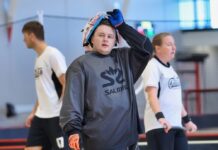4 July 1975
The first major parliamentary attempt at homosexual law reform in New Zealand was defeated. National MP Venn Young had introduced the proposed legislation a year earlier. It aimed to decriminalise homosexual acts between consenting adults aged 21 and over. Just before the vote, Young told the House, “My amendment to the Crimes Act is proposed on the basis of humanity, logic, and equality. I believe New Zealand is a country where these values are held high… There are times and countries in which humanity becomes lost in laws inherited from the past. Equality, compassion, and logic each demand that parliaments alter such laws.” Young’s words did not resonate with other Members of Parliament. More than a quarter (24) chose to abstain from voting, with another 34 voting against the bill. But rainbow communities and their allies were not going to accept the status quo. After eleven more years of campaigning, on 9th July 1986, MP Fran Wilde’s Homosexual Law Reform Act was successfully passed (49 MPs voted in favour, 44 against).
6 July 1988
The first meeting of the Wellington Bisexual Women’s Group took place. Co-founder Caren Wilton remembers, “It was great to meet other people who were also bisexual… People were really enthusiastic; they were really keen to have a support group and to keep meeting.” The group met regularly for potluck dinners, support, and political activities. At the time, biphobia was quite evident in rainbow communities. In one instance, Wilton remembers attending a local women’s dance where “they had a sign on the door that said this is a dance for lesbians: heterosexuals fuck off, bisexuals fuck off. And to my shame…I went into the dance with my friends, and my lesbian friend ripped down the sign and ripped it up.” In 1989, the group started producing the Bi-lines newsletter, and in 1990, they organised the first national bisexual conference. The group continues to this day, welcoming “bisexual and bifriendly and pansexual women and nonbinary people.”
July 2016
Human rights activist Briar Bentley died. Originally from the United Kingdom, Bentley moved to New Zealand to take up farming. She was a share milker in the Bay of Plenty before owning a number of dairy farms in Northland. Paying tribute to Bentley, Human Rights Commissioner Richard Tankersley said, “Briar was the driving force behind the transgender support network in Whangarei and, through that community work, became an invaluable contributor to human rights education in Northland.” As part of the Human Rights Commission’s Taku Manawa (My Human Rights) programme, Bentley launched her Conversation on Human Rights exhibition in Whangarei in 2011. The show presented thirty of her photographs, each a visual representation of an article of the Universal Declaration of Human Rights. Speaking about the exhibition, Bentley said, “I’m not trying to make a statement – I’m trying to get people to question their values.” The show went on to tour the country and was seen by thousands of people.
July 2023
This month marks the fifth anniversary of this history page being published in express magazine. A huge thank you to the team at YOUR ex for their commitment to showcase and uplift Aoteaora’s rich Takatapui LGBTI Rainbow heritage. As the author of the page, I’ve tried hard to highlight a diverse range of people, communities, and events and show our uniqueness but also our interconnectedness. I hope that the stories and people who have been featured will continue to inspire positive change. As Dr Elizabeth Kerekere says, “What do we get up for in the morning if not to change the world?”
Article | Gareth Watkins.























